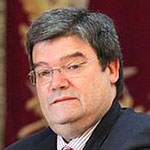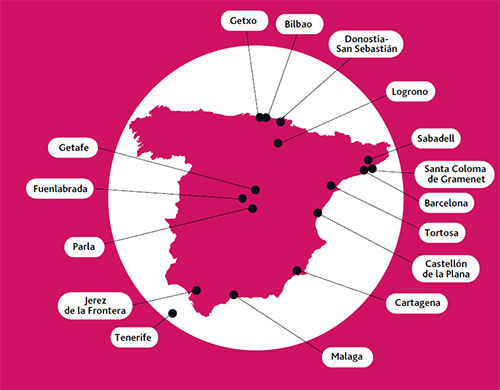Purpose:
The Immigration Council of the Bilbao City Council was created with the vocation of supporting immigrants in their capacity to organise, dialogue, and make proposals for the formulation of public policies and initiatives.
It is a collegial body that has consultative and informative nature, with the vocation of guaranteeing the democratic participation of immigrant associations and their interaction with other agents involved in the development and promotion of the integration policies.
Rationale:
Participation is a strategic and cross-cutting element in the design, implementation and evaluation of the programme of the Area of Equality, Living Together, Cooperation and Immigration. Participation leads to greater equality, strengthens citizenship, gives greater legitimacy and confidence to public authorities and achieves greater efficiency in the management of public affairs.
Within the strategic element of participation, a priority objective is the need to promote migrants as actors with the capacity to organise, dialogue, develop proposals and initiatives for the formulation of public policies and the development of citizen participation actions.
Process:
Council objectives and members:
- To participate in the Integration and intercultural coexistence programme leaded by Bilbao City Council
- To promote access to information for the foreign population and improve communication.
- To encourage the exchange of information, work in common and the coordination of activities between immigrant associations.
- To strengthen immigrant associations.
- To become an interlocutor of the situation of the immigrant population and to communicate the information to Bilbao City Council.
24 associations of migrants, local political parties and the Councillor of the Local Department part in the Local Council of immigration.
The Local Council of Immigration meets in plenary twice a year.
Lines of work and strategic projects
Annually the Local Immigration Council approves a work plan in plenary session. The work of the council is organised through the setting up of working groups.
- Empowerment of migrant women. In this line, an annual event is held to recognise migrant women by the City Council in various categories: politician, entrepreneur, community agent, artist, scientist and young person. In addition, different awareness-raising products are being developed and a network of migrant women in Bilbao has been set up.
- Strengthening of associations. In this line of work, different training and capacity-building activities, associative meetings, information sessions on municipal resources, etc. are developed.
- Promoting the participation of young people. The council has a working group of young people of migrant origin or descent to incorporate the youth perspective in its activities.
- Design, implementation and evaluation of activities linked to the annual commemoration of international milestones (8 March - International Women's Day, 21 March - International Day against Racial Discrimination, 18 December - International Day of Migrants). Different types of activities such as cinema-forums, workshops, awareness-raising campaigns, etc. are developed.
- Incorporation of the LGTBI perspective in the Council's associations. Awareness-raising and training activities are carried out with the council's associations and action protocols are developed with the associations that have care services.
- Development of intercultural competences. Pilot project in collaboration with the Faculty of Social Education and the Local Immigration Council. This project aims to develop students' intercultural competences in a practical way. The associations of immigrant people act as speakers in the classroom presenting challenges derived from diversity on which the pupils present alternatives. The associations share experiences of good practices developed and projects are fed back with the pupils' contributions. Project recognised by the University of Deusto as an educational innovation initiative.
Impact:
- 24 associations of migrants of various origins participate in the Council.
- Stable space for direct dialogue with political and technical managers of the Bilbao City Council.
- Improving information on municipal resources and services.
- Co-management of projects with their own budget between associations and the City Council.
- Development of projects within the framework of public-private collaboration.
- Generation of spaces for interaction with citizens.
- Development of alliances with key local agents (University) to favour coexistence in diversity.
Key reference documents:







